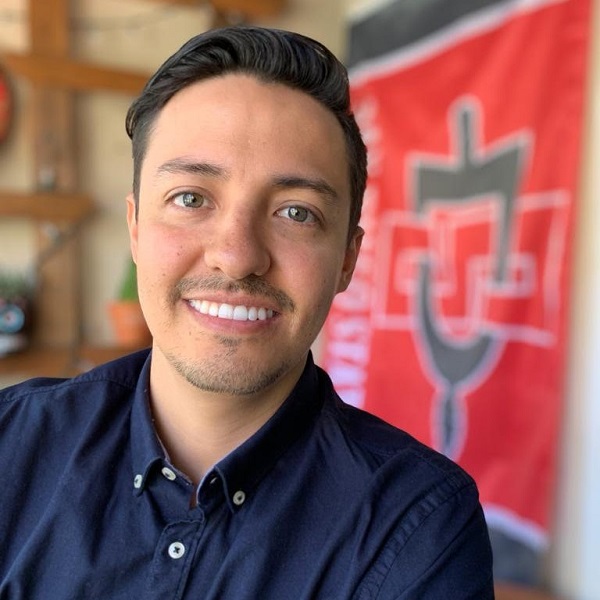Environmental Health Assistant Professor Studies Kidney Disease in Farmer Populations

He found his love for research during his Master’s Program at SDSU, where he was mentored by Dr. Eunha Hoh. He was captivated by learning about how people are exposed to environmental contaminants and the health risks they face as a result. During his PhD program, Dr. Lopez-Galvez had the opportunity to learn more about occupational health in several projects involving migrant minority workers that further developed his skills in exposure science and epidemiology. His dissertation looked into characterization of kidney functioning among migrant farm workers on the U.S – Mexico border region and found that the exposure to heat stress and pesticides was correlated with chronic kidney issues. Dr. Lopez-Galvez notes that the cases of these kidney diseases continue to grow today and have been found in young farm workers exposed to high levels of heat stress in warm regions around the globe. This month, one of Dr. Lopez-Galvez’s dissertation paper titled Longitudinal assessment of kidney function in migrant farm workers, was chosen as a paper of the month by the National Institute of Environmental Health Sciences because of the significance of its findings, as this study was the first one to evaluate the longitudinal changes in kidney function and pesticide exposure among migrant farm workers.
Dr. Lopez-Galvez has over 10 years of experience working on environmental health issues experienced by underserved vulnerable populations including low-wage immigrant workers, children, and residents of the U.S.-Mexico border region. He recently received a grant from the National Children’s Center for Rural and Agricultural Health and Safety (NCCRAHS) to conduct a pilot study that investigates the relationship between neurobehavioral issues and chemical exposures that children of farmworkers are subjected to in the agricultural region of Imperial County, California. Dr. Lopez-Galvez also works as the program coordinator for several Thirdhand Smoke Consortium projects at SDSU. He recently applied for a grant to investigate the exposure to second and third-hand smoke and vaping residues among community college students by measuring their exposure with novel sampling tools such as silicone wristbands. In collaboration with professors from the SDSU School of Public Health, Dr. Lopez-Galvez plans to expand the utilization of innovative and non-invasive exposure assessment tools to investigate the effect of environmental and occupational hazards on human health among vulnerable groups in San Diego.

